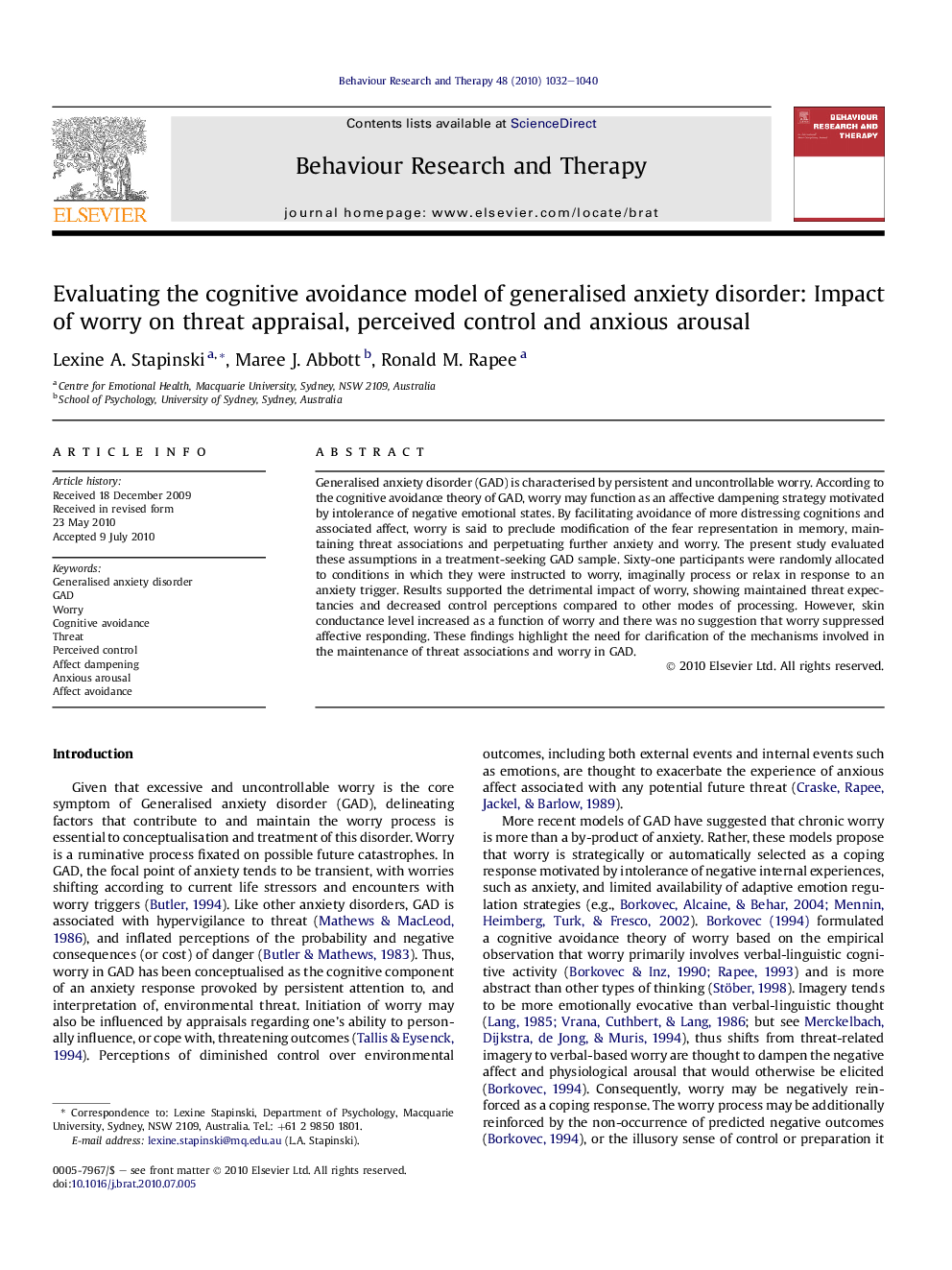| Article ID | Journal | Published Year | Pages | File Type |
|---|---|---|---|---|
| 10444659 | Behaviour Research and Therapy | 2010 | 9 Pages |
Abstract
Generalised anxiety disorder (GAD) is characterised by persistent and uncontrollable worry. According to the cognitive avoidance theory of GAD, worry may function as an affective dampening strategy motivated by intolerance of negative emotional states. By facilitating avoidance of more distressing cognitions and associated affect, worry is said to preclude modification of the fear representation in memory, maintaining threat associations and perpetuating further anxiety and worry. The present study evaluated these assumptions in a treatment-seeking GAD sample. Sixty-one participants were randomly allocated to conditions in which they were instructed to worry, imaginally process or relax in response to an anxiety trigger. Results supported the detrimental impact of worry, showing maintained threat expectancies and decreased control perceptions compared to other modes of processing. However, skin conductance level increased as a function of worry and there was no suggestion that worry suppressed affective responding. These findings highlight the need for clarification of the mechanisms involved in the maintenance of threat associations and worry in GAD.
Keywords
Related Topics
Health Sciences
Medicine and Dentistry
Psychiatry and Mental Health
Authors
Lexine A. Stapinski, Maree J. Abbott, Ronald M. Rapee,
